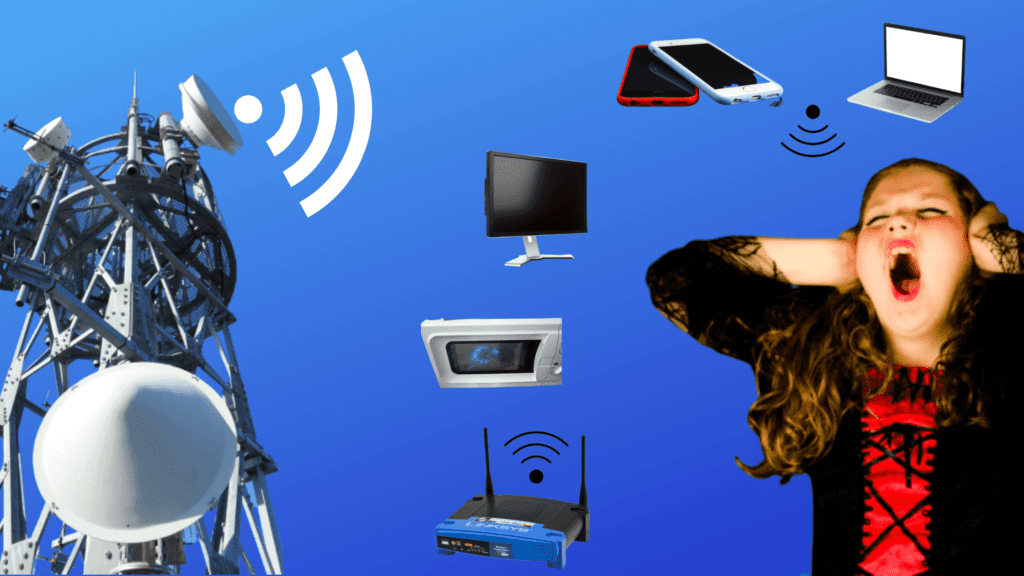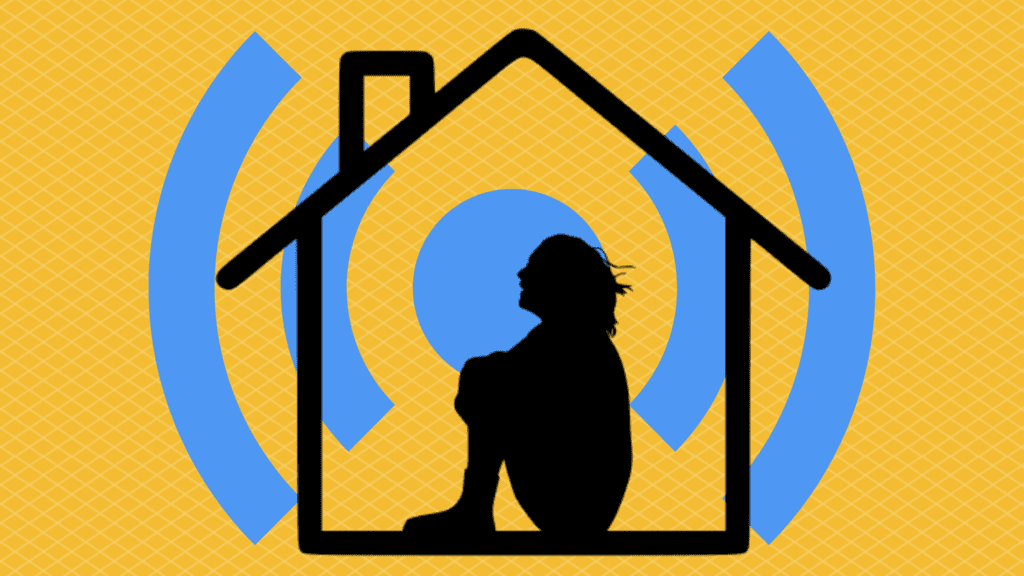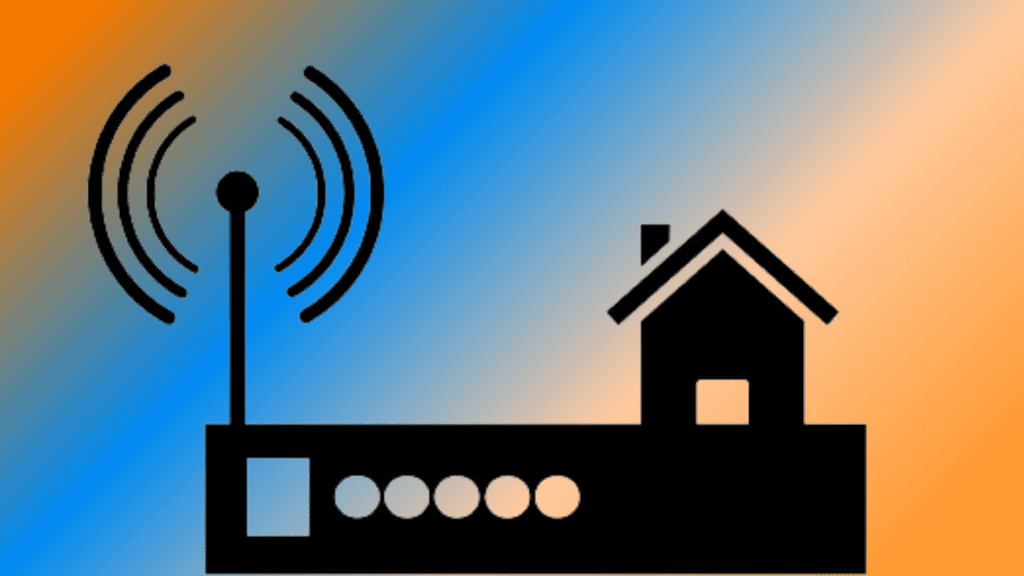We sometimes add products that we believe may be beneficial to our readers. We may receive a small commission if you purchase using the links on this page. Read our affiliate disclaimer
As technology advances, so does our exposure to electromagnetic fields (EMF). We’re surrounded by EMF radiation from the devices we use every day, including cell phones, laptops, televisions, and Wi-Fi routers. While there is no doubt that technology has revolutionized the way we live, it’s important to be aware of the potential health risks that come with constant exposure to EMF radiation. In this article, we’ll explore the effects of EMF radiation on our bodies and the importance of protecting ourselves.
Table of Contents
ToggleWhat is EMF exposure?

Electromagnetic fields (EMF) are created by the movement of electrically charged particles. EMF radiation can come from a variety of sources, including power lines, household appliances, and electronic devices. It’s measured in units of electric and magnetic fields, known as volts per meter (V/m) and tesla (T), respectively.
How does it affect the body?
Electromagnetic radiation is a type of energy that is emitted by electronic devices and wireless networks. While it is generally considered safe at low levels, prolonged exposure to high levels of EMF radiation can have negative effects on the body.
When the body is exposed to electromagnetic field, the radiation can penetrate the body’s tissues and interact with the body’s cells. This can cause a number of different effects, including:
- Heating of body tissues: Electromagnetic rays can cause tissues to heat up, which can lead to burns and other types of tissue damage.
- Changes in cell function: EMF radiation can affect the way that cells function, including their ability to communicate with each other and carry out normal functions.
- Disruption of biological processes: EMF radiation can disrupt the body’s natural biological processes, including the production of hormones and other important chemicals.
- DNA damage: In some cases, exposure to high levels of EMF radiation can cause damage to the body’s DNA, which can lead to mutations and potentially cancerous growths.
The effects of EMF radiation can vary depending on the level and duration of exposure, as well as the individual’s sensitivity to EMF radiation. Some people may experience symptoms such as headaches, fatigue, and difficulty concentrating, while others may not experience any noticeable effects at all.
What are the symptoms of EMF exposure?
The symptoms of EMF exposure can vary depending on the individual’s sensitivity to EMF radiation and the level and duration of exposure. Some of the most common symptoms of EMF exposure include:
- Headaches
- Fatigue
- Dizziness
- Difficulty concentrating
- Sleep disturbances
- Tingling or burning sensations in the skin
- Muscle and joint pain
- Mood changes, such as anxiety or depression
- Digestive problems
It’s important to note that these symptoms can also be caused by other factors, and that not everyone who is exposed to EMF radiation will experience these symptoms. However, if you are experiencing any of these symptoms and suspect that they may be related to EMF exposure, it may be a good idea to take steps to minimize exposure to EMF radiation, such as turning off wireless devices at night or using shielding products to reduce exposure. If symptoms persist, it’s important to consult with a healthcare professional to rule out other potential causes.
What does EMF do to your brain?
EMF radiation can penetrate the brain and affect brain function. Studies have shown that exposure to EMF radiation can cause changes in brain activity, including alterations in brain waves and an increase in oxidative stress.
Can EMF radiation affect hormones?
Exposure to EMF fields can disrupt the production and regulation of hormones in the body. This can lead to a range of health problems, including sleep disturbances, anxiety, and depression.
Is EMF bad for sleep?
Electromagnetic radiation can interfere with sleep patterns and make it harder to fall asleep. Exposure to EMF radiation can disrupt the production of melatonin, which is essential for regulating sleep.
Can EMF radiation cause heart problems?
Studies have linked EMF radiation to an increased risk of heart problems, including an irregular heartbeat and an increased risk of heart disease. While more research is needed to understand the relationship between EMF exposure and heart health, it’s important to be aware of the potential risks.
Does EMF weaken the immune system?
EMF radiation has been shown to affect the immune system and may weaken the body’s ability to fight off infections. Studies have found that exposure to EMF radiation can lead to changes in white blood cell counts and immune function.
Does EMF radiation affect sperm?
There is evidence to suggest that EMF radiation can affect male fertility. Studies have found that exposure to EMF radiation can decrease sperm motility and increase DNA damage in sperm cells.
Does EMF cause stress?

Exposure to EMF fields can cause stress in some individuals. Studies have found that exposure to EMF radiation can increase levels of the stress hormone cortisol, leading to feelings of anxiety and tension.
Do Electromagnetic fields cause cancer?
The link between EMF radiation and cancer is still under investigation. While some studies suggest a possible link between EMF exposure and cancer, the evidence is inconclusive. The IARC has classified EMF radiation as “possibly carcinogenic to humans,” but more research is needed to fully understand the relationship between EMF radiation and cancer.
EMF danger level
The level of danger associated with EMF radiation depends on a number of factors, including the strength of the radiation, the duration of exposure, and the individual’s sensitivity to radiation.
Electromagnetic radiation is measured in units called milligauss (mG) or microtesla (μT). The recommended safe level of EMF exposure varies depending on the source of the radiation and the duration of exposure. In general, the lower the EMF exposure, the better.
According to the World Health Organization (WHO), EMF exposure of up to 100 μT is considered safe for the general public, while exposure above 100 μT may be associated with health risks. However, some researchers suggest that even lower levels of EMF exposure may be harmful, particularly for children, pregnant women, and individuals with certain health conditions.
In addition to the strength of the radiation, the duration of exposure is also an important factor to consider. Prolonged exposure to EMF radiation, even at low levels, may increase the risk of health problems over time.
Overall, it’s important to be aware of the potential risks of EMF radiation and take steps to minimize exposure, particularly if you are sensitive to it or want to reduce your risk of potential health problems.
How much EMF is safe for humans?
The safe level of EMF exposure for humans is still a topic of debate among researchers and health experts. However, many countries have established recommended exposure limits based on current scientific research. For example, in the United States, the Federal Communications Commission (FCC) sets guidelines for safe levels of EMF radiation exposure from electronic devices.
The FCC recommends a maximum exposure limit of 1.6 watts per kilogram of body weight for mobile phones and other wireless devices. In Europe, the recommended limit is lower, at 2.0 watts per kilogram of body weight.
It’s important to note that these recommended values are based on short-term exposure and do not necessarily reflect the potential long-term effects of EMF radiation. Therefore, some health experts recommend taking a precautionary approach and minimizing exposure to EMF radiation as much as possible, especially for those who are sensitive to it or want to reduce their risk of potential health problems.
Which devices emit the most EMF radiation?
Some of the devices that emit the most EMF radiation include:
- Smartphones
- Laptops and computers
- Wi-Fi routers and modems
- Bluetooth devices
- Smart TVs
- Microwaves
- Cordless phones
It’s important to note that the level of EMF radiation emitted by these devices can vary depending on several factors, such as the device’s age, signal strength, and distance from the user. Therefore, it’s important to be aware of the potential sources of EMF radiation and take steps to minimize exposure, especially if you are sensitive to it or want to reduce your risk of health problems associated with long-term exposure.
How to protect from EMF radiation?
There are several ways to protect yourself from EMF radiation, including:
- Minimizing your use of electronic devices.
- Keeping your distance from electronic devices when in use.
- Using EMF shielding products, such as cases and covers for electronic devices.
- Reducing your exposure to Wi-Fi and other wireless networks.
- Grounding yourself by spending time in nature or using grounding mats
EMF protection for home

There are several steps you can take to minimize your exposure to EMF radiation in your home. Here are some tips for EMF protection for your home:
- Use wired connections instead of Wi-Fi: Wired connections are typically safer than wireless connections when it comes to EMF exposure. If possible, connect your devices to the internet using Ethernet cables instead of relying on Wi-Fi.
- Keep your distance from wireless devices: If you do use wireless devices, such as cell phones and routers, keep them at a safe distance from your body. Avoid carrying your phone in your pocket or sleeping with it next to your head.
- Use shielding products: There are a variety of shielding products on the market designed to reduce EMF exposure. These can include EMF shielding paint, curtains, and bed canopies.
- Turn off wireless devices at night: Many people find it helpful to turn off wireless devices, such as Wi-Fi routers and cell phones, at night to reduce EMF exposure while sleeping.
- Use a landline phone: Landline phones are a safer option than cell phones when it comes to EMF exposure. If you can, consider using a landline phone instead of a cell phone for phone calls.
- Limit your use of wireless devices: The less time you spend using wireless devices, the less EMF exposure you’ll experience. Try to limit your use of cell phones, tablets, and other wireless devices whenever possible.
By following these tips, you can help reduce your exposure to EMF radiation in your home and protect your health.
Conclusion
EMF radiation is a growing concern as electronic devices become more prevalent in our daily lives. While the potential health risks associated with EMF radiation are still under investigation, it’s important to take steps to minimize exposure and protect yourself from potential harm. By reducing your use of electronic devices and using EMF shielding products, you can help reduce your risk of health problems associated with EMF radiation.
References
https://www.ncbi.nlm.nih.gov/pmc/articles/PMC6025786/
https://pubmed.ncbi.nlm.nih.gov/17193782/
https://pubmed.ncbi.nlm.nih.gov/26686296/#:~:text=Recent%20work%20has%20demonstrated%20that,that%20have%20undergone%20prenatal%20exposure.
https://pubmed.ncbi.nlm.nih.gov/26841641/
https://pubmed.ncbi.nlm.nih.gov/22624036/
https://publications.iarc.fr/126

